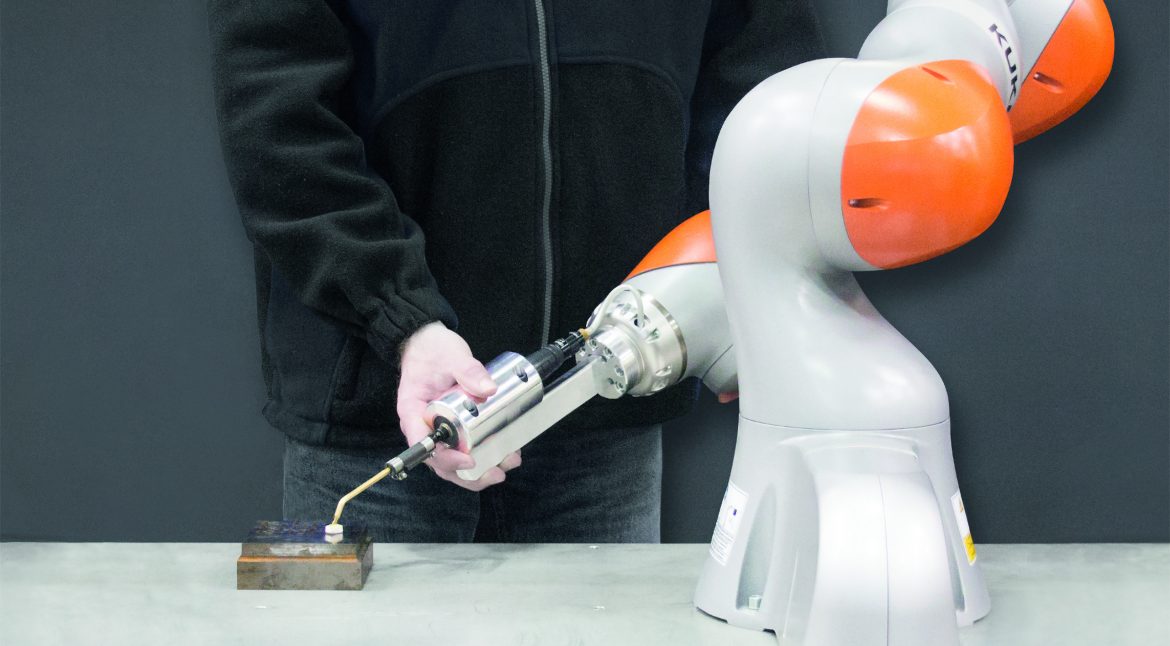Toolmaker Siegfried Hofmann, based in Lichtenfels, Germany, specializes in the manufacture of high-performance molds, among other things. The company was looking for a solution for the automatic polishing of injection molds. The particular challenge for the desired solution was to develop a system that could also be used economically for a quantity of 1. In addition, the employees were to be relieved of the manual and very time-consuming polishing work.
“With the flexible polishing system from Boll Automation, we were able to further expand the degree of innovation in our production,” says Markus Gräf, head of process development at Hofmann.
Boll Automation is a specialist in the field of human-robot collaboration and develops systems that enable automation even for small batch sizes and a high number of variants. For toolmaker Hofmann, the engineers from Kleinwallstadt have developed a flexible polishing system in which the employee interacts directly with the robot together.
The polishing system works in two steps:
Step 1: Manual teaching of a robot path.
Step 2: Independent execution of the process by the robot
For a quick and easy set-up of the process sequence, the robot is taken directly into the hand of the operator and the desired robot movements are simply demonstrated (“Teaching by Demonstration”). For this, the operator does not need to have any programming knowledge. By simply teaching the robot path, the system can be adapted to new tasks within a very short time. The user can make these adjustments himself at any time. Time-, cost- and knowledge-intensive robot programming is completely eliminated.
“Our employees are thrilled with the ease of use of the new system. New processes can be taught within a few minutes. This function was particularly important for us, because we often have very small quantities of our injection molds, which previously made automation almost impossible,” says Gräf.
For the subsequent automation of the previously set-up process, intelligent safety and material logistics concepts are used. Adaptive process control is one of the core competencies of Boll Automation. The process is not only rigidly reproduced, but also monitored and controlled by sensors. This enables consistent results at all times despite varying initial situations. For maximum flexibility, the robot is mounted on a mobile cart and can thus be moved as required.
By implementing the new collaborative polishing system from Boll Automation, the toolmaker, Siegfried Hofmann, was able to achieve a number of benefits:
- Relieving employees of one-sided and monotonous work.
- Achievement of consistent process quality
- Process know-how of the employee is still available
- The attractiveness of the jobs in the finishing department is increased
- Increase in productivity:
- The employee is only needed for teaching the process movement
- One employee can supervise several Robomill systems at the same time
See the application live in action in a short practical video.

